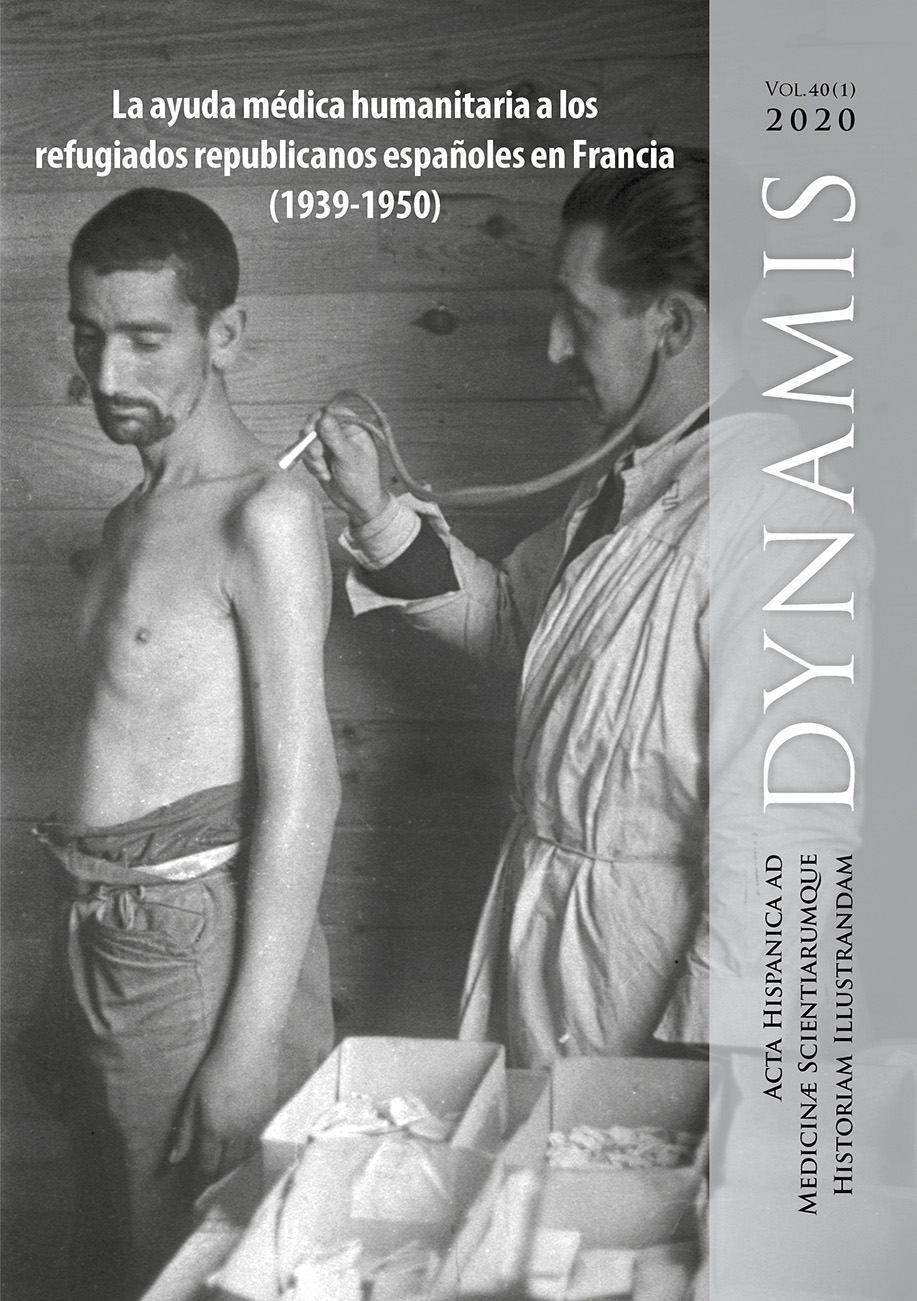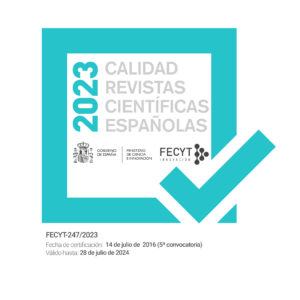Las secuelas patológicas de los campos de concentración entre los refugiados españoles en Francia: retos diagnósticos y terapéuticos en el Hospital Varsovia de Toulouse (1944-1950)
DOI:
https://doi.org/10.30827/dynamis.v40i1.15660Palabras clave:
enfermedades, campos de concentración, exilio republicano español, II Guerra Mundial, FranciaResumen
A partir de la primavera de 1945, el Hospital Varsovia de Toulouse dispensó asistencia médica a miles de refugiados republicanos españoles que permanecían exiliados en el sur de Francia. Este hospital había sido fundado en el otoño de 1944 en las afueras de Toulouse tras la invasión del Valle de Arán en el marco de la llamada Operación Reconquista de España. Revisando los numerosos casos clínicos que aparecen en las páginas de la revista Anales del Hospital Varsovia (1948-1950), se advierte que muchos pacientes presentaban enfermedades contraídas en los campos de concentración a causa de las pésimas condiciones de vida en un régimen de confinamiento. En su práctica asistencial, los médicos observaban cuadros clínicos insidiosos, de difícil diagnóstico, que tras sucesivas pruebas clínicas y de laboratorio revelaban enfermedades carenciales larvadas (debidas a la malnutrición), infecciones crónicas ocultas (tuberculosis y parasitosis intestinales) y enfermedades de transmisión sexual.
Descargas
Descargas
Publicado
Cómo citar
Número
Sección
Licencia
Dynamis se encuentra adherida a una licencia Creative Commons Reconocimiento (by), la cual permite cualquier explotación de la obra, incluyendo una finalidad comercial, así como la creación de obras derivadas, la distribución de las cuales también está permitida sin ninguna restricción.

















